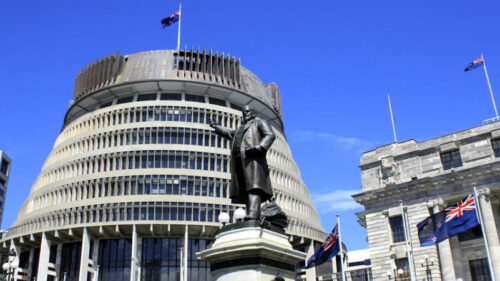New Caledonia, a French overseas territory rich in nickel deposits, is seeing political unrest. The indigenous Kanak population fears that proposed changes to voting laws will dilute their political power.
Located in the South Pacific, the islands became a part of France in 1853. French arrivals — including many deported prisoners — lived alongside the native Kanaks. During the 1970s and 1980s, the Kanaks saw population growth that boosted their share of the electorate and, thus, their political aspirations. They have advocated for increased autonomy and even independence from France.

Many Kanaks are discontented because they feel excluded from the territory’s recent economic growth, driven by the expansion of the nickel industry. This industry has made many French entrepreneurs rich and employed a new population of workers from Southeast Asia but largely left the natives behind.
The Kanaks’ population growth stagnated, even declining between 2009 and 2014. They now constitute 41% of the island’s population, well short of a majority. However, they have increased political influence because the electoral law restricts voting to Kanaks and others, including the island’s ethnic French population, who have been in the islands for a long time; it excludes the new French arrivals and Asian workers who have come with the nickel boom. Now, the government in Paris has threatened to change this settlement with a proposal to extend voting rights in provincial elections to French residents who have lived on the island for at least ten years.
The French government acknowledges the Kanaks’ aspirations for local autonomy but maintains that the proposed changes are a matter of fairness. The Élysée argues that individuals who live in New Caledonia and contribute to its economy should have a say in its governance. Some New Caledonians do support this perspective, arguing that all island residents, not just its indigenous population, should determine the island’s future. Yet disgruntled New Caledonians have taken to the streets, with some even going as far as erecting barricades and looting to show the government their discontent.
The latest chapter in a long history
The current political crisis is not an isolated incident. It is the latest manifestation of long-standing tensions between the Kanaks and the French government over the island’s future. These tensions have erupted into violence before, notably in the 1980s and 1990s, when clashes between Kanak independence activists and French security forces resulted in significant unrest.
The Nouméa Accord of 1998 was the culmination of a series of agreements reached in the late 1980s and 1990s. This accord outlined a path towards greater autonomy for New Caledonia and included provisions for three referendums on independence. The first two referendums, held in 2018 and 2020, resulted in narrow victories for the pro-France side. However, the pro-independence Kanaks boycotted the third referendum in 2021, citing concerns about the process’s fairness due to the impact of the COVID-19 pandemic on their community.
These most recent proposed changes to voting laws have reignited the debate over New Caledonia’s future and its relationship with France. The Kanaks perceive these changes as a betrayal of the Nouméa Accord’s spirit, which they believe paved the way for their eventual independence. The French government, on the other hand, maintains that the changes are necessary to ensure fair representation for all residents of the island.
Strategic importance and economic value further complicate the situation in New Caledonia. The island holds 10% of the world’s nickel resources, a critical component in the production of batteries for electric vehicles and other technologies. This makes New Caledonia a valuable asset for France, both economically and geopolitically.
What will the Élysée do next?
President Emmanuel Macron, leading the French government, has expressed his commitment to fostering dialogue and finding a political solution to the crisis. In June, he decided to halt the proposed reforms. Yet Paris’s long-term goals for the island territory remain uncertain.
Kanaks continue to deeply distrust the French government’s intentions. They view the suspended proposed voting law changes as the latest attempt to undermine their aspirations for self-determination and maintain French control over the island.
The situation in New Caledonia serves as a reminder of the ongoing challenges faced by indigenous populations around the world in their struggle for self-determination. It also highlights the complex and often fraught relationship between former colonial powers and their overseas territories. As the global community watches, the people of New Caledonia and the French government must chart a path forward that respects the rights and aspirations of all involved.
The views expressed in this article/podcast are the author’s own and do not necessarily reflect Fair Observer’s editorial policy.
















Comment